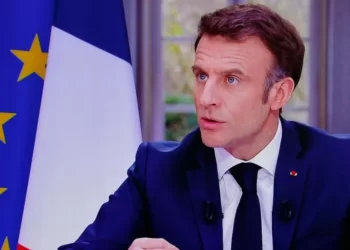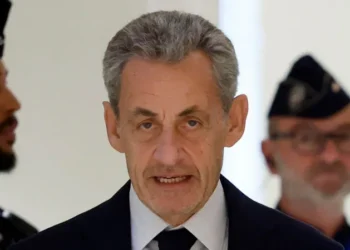U.S. Vice President JD Vance has warned global leaders and tech industry executives that “excessive regulation” could cripple the rapidly growing artificial intelligence industry in a rebuke to European efforts to curb AI’s risks.
The speech underscored a widening, three-way rift over the future of the technology — one that critics warn could either cement human progress for generations or set the stage for its downfall.
At the summit, Vance made his first major policy speech since becoming Vice President last month, framing AI as an economic turning point but cautioning that “at this moment, we face the extraordinary prospect of a new industrial revolution, one on par with the invention of the steam engine.” “But it will never come to pass if overregulation deters innovators from taking the risks necessary to advance the ball,” Vance added.
The US Vice President, leveraging the AI summit and a security conference in Munich later this week, is seeking to project Trump’s forceful new style of diplomacy.

He stated that the Trump administration will “ensure that AI systems developed in America are free from ideological bias,” and pledged the US would “never restrict our citizens’ right to free speech.”
Vance also took aim at foreign governments for “tightening the screws” on U.S. tech firms, saying such moves were troubling.
Meanwhile, European Commission President, Ursula von der Leyen stressed that AI needs the “confidence of the people and has to be safe″ and detailed EU guidelines intended to standardize the bloc’s AI Act but acknowledged concerns over regulatory burden. “At the same time, I know that we have to make it easier and we have to cut red tape and we will,” she added.
She also announced that the “InvestAI” initiative had reached a total of €200 billion in AI investments across Europe, including €20 billion dedicated to AI gigafactories.
Growing Divide Between Washington And European Allies On AI Regulation
Vance’s remarks underscored the growing divide between Washington and its European allies on AI governance.
The United States, under President Donald Trump, champions a hands-off approach to fuel innovation, while Europe is tightening the reins with strict regulations to ensure safety and accountability.
Meanwhile, China is rapidly expanding AI through state-backed tech giants, vying for dominance in the global race.
The U.S. was noticeably absent from an international document signed by more than 60 nations, including China, making the Trump Administration the glaring outlier in a global pledge to promote responsible AI development.
The international document, signed by scores of countries, including European nations, pledged to “promote AI accessibility to reduce digital divides” and “ensure AI is open, inclusive, transparent, ethical, safe, secure, and trustworthy.”
It also called for “making AI sustainable for people and the planet” and protecting “human rights, gender equality, linguistic diversity, consumer rights, and intellectual property.”
In a surprise move, China — long criticized for its human rights record — signed the declaration, further widening the distance between America and the rest in the tussle for AI supremacy.
The agreement comes as the EU enforces its AI Act, the world’s first comprehensive AI law, which took effect in August 2024.
The summit laid bare a global power struggle over AI—Europe wants strict rules and public funding, China is expanding state-backed AI, and the U.S. is going all-in on a free-market approach.
Vance, a vocal critic of European tech rules, has floated the idea of the U.S. rethinking NATO commitments if Europe cracks down on Elon Musk’s social media platform, X.
His Paris visit also included talks on Ukraine, AI’s growing role in global power shifts, and U.S.-China tensions.
READ ALSO: Ghana’s Anti-Corruption Efforts Wane as its CPI Score Declines






















